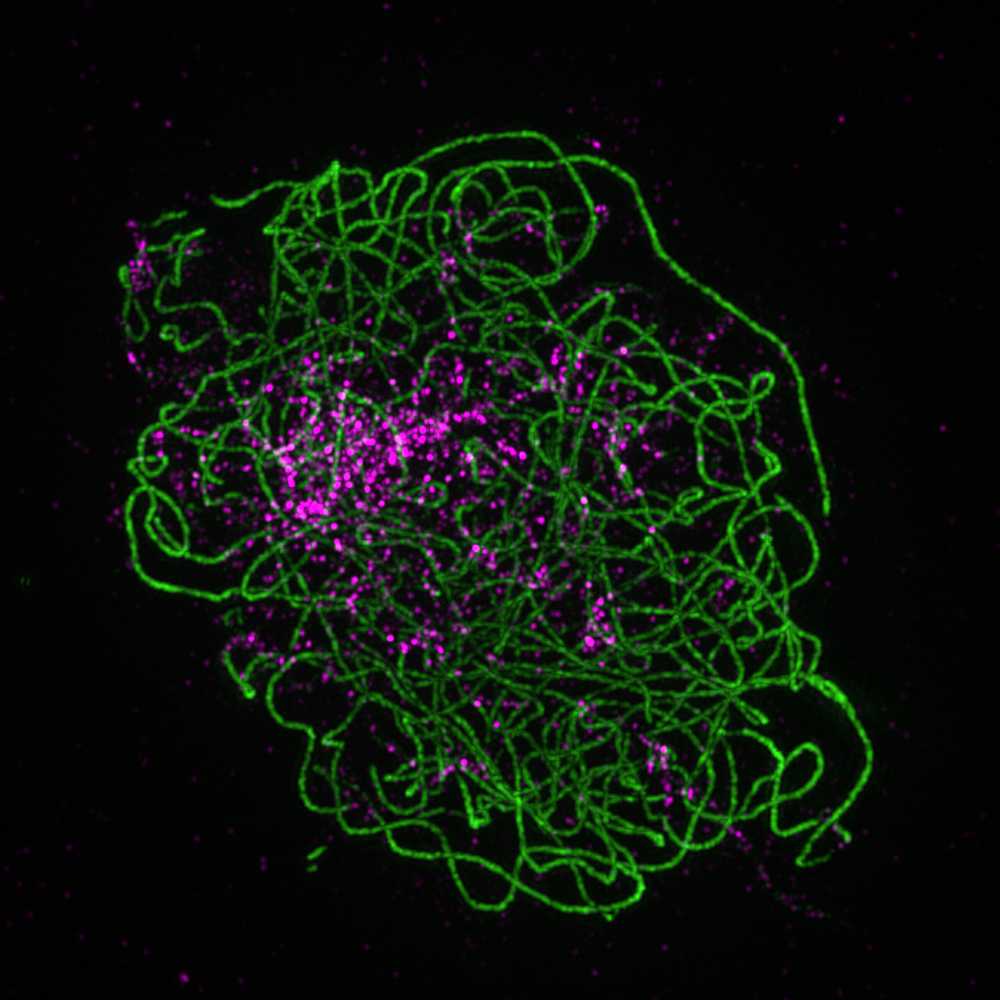Unlocking the potential of barley breeding: how the HvST1 gene can increase genetic diversity

Scientists at The James Hutton Institute have discovered that a gene that they called HvST1 may play a key role in their quest to safeguard the future of barley. The barley industry, which faces challenges from climate change, soil depletion and pest pressure, needs varieties that are hardier, more productive and better suited to diverse growing conditions.
HvST1 (which stands for “Sticky Telomeres 1”) is a gene that influences how chromosomes behave during meiosis, the stage of reproduction where genetic recombination happens. Researchers discovered that HvST1 affects how tightly chromosomes stay connected at certain points. By altering this gene, scientists found they could ‘loosen up’ these connections, allowing more gene combinations to emerge during reproduction.
The Hutton is home to the International Barley Hub (IBH), a centre of excellence, funded as part of a £62m investment through the Tay Cities Region Deal (TRCD), a partnership between local, Scottish and UK governments and the private, academic and voluntary sectors that reinforces Scotland’s position as a global leader in crop science and climate adaptation. It promotes barley science and collaboration across the scientific, industrial and commercial sectors, with the goal of generating new discoveries and translating them into real-world solutions, safeguarding barley for food, drink and feed markets worldwide.
Dr Isabelle Colas, plant molecular geneticist and deputy director of the International Barley Hub (IBH) explained more about these findings: “Barley is one of the world’s most important crops, used in everything from food and animal feed to beer production. At the IBH we are constantly driving innovation to keep this vital crop resilient and sustainable.
“Our recent discoveries about HvST1 may provide breeders with more flexibility and help in their search for ideal trait combinations”
Dr Isabelle Colas – The James Hutton Institute
“By shuffling genes and selecting beneficial traits, breeders can enhance certain qualities, like drought resistance or disease tolerance, but the genetic toolbox isn’t limitless, and in barley, it’s been especially challenging to create the right combinations.
“Genetic recombination is the natural process that mixes up DNA during sexual reproduction, creating new gene combinations that can give rise to new traits. For breeders, this genetic reshuffling is crucial in achieving desirable traits in crops. However, in barley, recombination is limited to certain regions of the chromosomes. This ‘recombination bias’ means that only a portion of barley’s genome actively participates in the reshuffling, making it difficult to separate good traits from undesirable ones. Our recent discoveries about HvST1 may help break down this barrier, providing breeders with more flexibility and helping in their search for ideal trait combinations.”
Studying a group of barley plants with natural variations in this gene, scientists found that barley plants with a mutated version of HvST1 had increased recombination across more regions of their chromosomes, rather than just in the same limited areas. The change was significant enough to open up whole new sections of the genome for reshuffling, giving breeders access to traits that were previously hard to separate.
Understanding HvST1 and its role in increasing recombination rates in barley is a game-changer for plant breeding. By working with barley plants that have the HvST1 mutation, breeders could mix and match traits more freely and potentially accelerate the development of varieties that are better suited for today’s agricultural demands. It opens a pathway for faster and more efficient plant breeding, which is essential for stronger, more resilient crops.
The potential of HvST1 doesn’t end with barley. The scientists’ findings could inspire similar studies in other crops, helping to overcome similar genetic limitations in recombination. Furthermore, by combining HvST1 mutations with other genetic techniques—such as CRISPR, or selective gene editing—scientists could create even greater flexibility in how traits are combined. These kinds of innovations make it possible to breed crops with highly targeted traits, which will be invaluable in adapting agriculture to a changing world.
The impact of HvST1 could also align with a broader shift in agriculture towards sustainability, resilience, and adaptability. By increasing the genetic diversity within crops, breeders can help ensure that these plants are more resistant to disease and extreme weather, reducing the need for pesticides and other agricultural inputs. This approach could be a key part of developing sustainable, resilient crop systems that are better suited to future climate conditions.
The study is published in New Phytologist.
